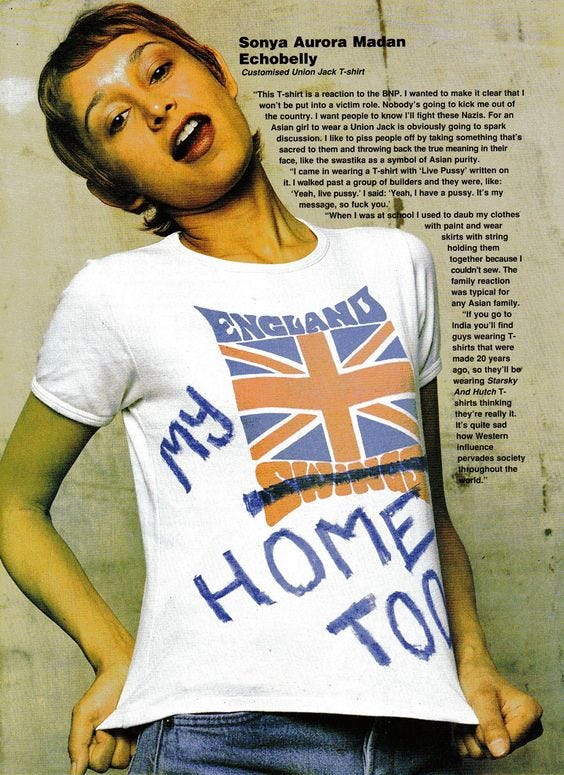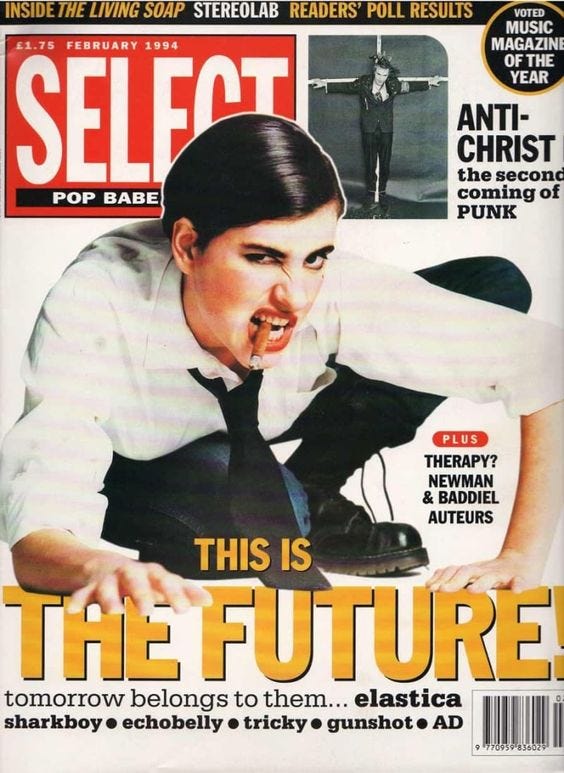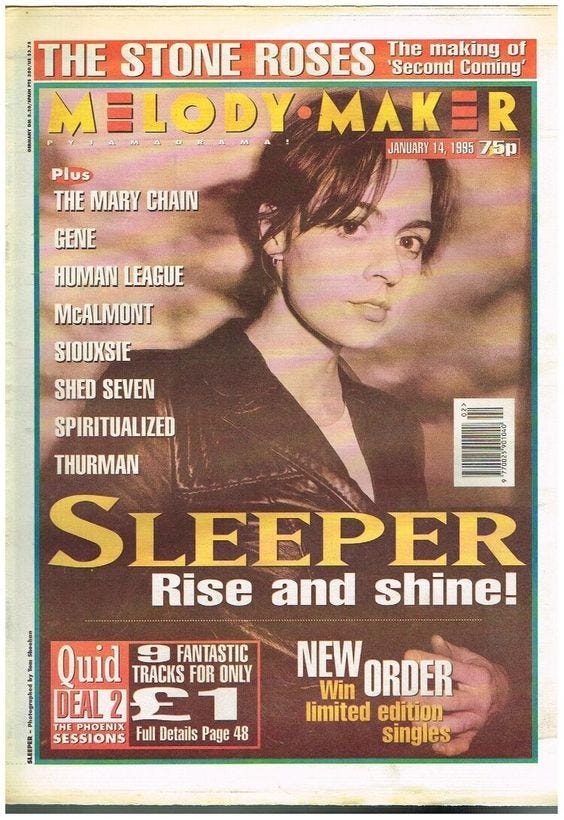Hey, to my faithful readers! Thank you for reading, I love you all immensely. And thus in this aside I say “to hell with asides!” because if I’m going to be completely honest, what’s a little reader’s note if not something to cover my ass with when I do a bodge job at a blog post? No more pussyfooting, take what you want and apologise later, hey? Though, I am once again cramming this writing session in after work (surprise). On that note, if you’re a blog lurker, just subscribe. It helps me out and I’m always open to criticism provided you’re doing something amazing and committed and at least half as hard as running a substantial weekly blog. Onwards…
Let’s kick this feminist discourse off with a nice appropriate anecdote, why don’t we? Being a woman is hard. Being a person is hard, but there’s a lot of unfortunate experiences that pervade the female existence that fill me up with righteous anger and if you, reader, are also a decent human, then your feelings should concur. Yesterday, I was at a family dinner, when an older man kept catching my eye (shout out my cuz who sometimes reads my blogs and was there). After publicly asking, first my parents and then me, if I had a boyfriend, he confidently invited me out for a coffee from across both our tables. At this point there’s no transgressions. The poor guy mustn’t have caught on to my ‘only attracted to obsessed artists’ shtick which I thought I was representing accurately as always with my Keith Richards/Eve Babitz/Pamela des Barres getup, but that’s hardly a social faux pas. The issue lies where after four polite phrasings of “thank you, but no”, even going to the extent of saying “you are way too old for me” after he told me he was thirty and refused to bat an eye at my paling nineteen years of age, I felt pressured into a situation where I had to take his number in the sure case I would “change my mind” so that I wouldn’t disrupt the fragile atmosphere of Bankstown’s humble Polish Club. Fuck the atmosphere, honestly. So, I was polite, I was firm, I was consistent, which begs the question why did even I, strong-willed as I believe I am, feel obliged to engage with a perpetually smirking and expectant man who apparently could not take no for an answer? Why does any man feel so entitled to ‘convince’ a woman of his merit, that he’d extensively risk the social tension in the room for a result? This is just the most recent of a long line of interactions in which a man has made me feel like a piece of shit, some ranging from a simple off-hand comment to more serious stuff I’d rather not get into, and the real kicker is that I don’t know a single woman who hasn't offered a slew of similar stories when I’ve asked them. In this case, it is clearly not flattering, rather purely insulting when someone doesn’t respect my decision made, or think that they’re such hot shit that I absolutely must surpass my own sound (excellent, actually) judgement because they supposedly know better. Still, the real funny thing is that I’d had this topic in mind for the past week, thinking vaguely about ‘woman-scorned’ and the universal qualities of shit-talking britpop singles in which buddy here gets a shout-out, and it’s nothing like a sign from the universe about how right I always am.
So, sardonicism was its own great event in the 90s, specifically amongst British rock. ‘Cigarettes & Alcohol’ was more-or-less satirical commentary on the emptiness of the scene, Pulp’s pivotal ‘Common People’ took a precise and truly excellent swing at class-tourists and our Latter-day Saints, Blur, chucked out tune after tune on some ridiculous stereotype; ‘Country House’, ‘Charmless Man’, ‘Tracy Jacks’ and ‘Stereotypes’ (funnily enough). It only makes sense that when women took up their pens (and guitars) they would justly take aim at all manner of “hypothetical” male characters that posed a significant insufferableness. Britpop as an era has been widely criticised for being a scene brimming with misogyny, epitomised in the distasteful and discontinued sitcom Men Behaving Badly and laddish mens-lifestyle mags such as Loaded. My copy of Kevin Cummings utterly gorgeous photography collection, ‘While We Were Getting High: Britpop and The 90s’, even has dedicated sections where legends of the era Brett Anderson, Sonya Madden, Martin Rossiter and Noel Gallagher are given the opportunity to rip into the reductive cultural side of what started off as a really creative scene. Celebrating Britishness seemed to have amped up the confidence of English men a tad too far as the worst nationalism, racism, and misogyny ran rampant in working-class blokes and self-important “sensitive” art students. This dickheadishness was uber stylish as band ethe filtered through the ranks, usually becoming a far cry from artists’ original intentions- though, no, I do think Damon Albarn and the Gallaghers and even Brett Anderson (though I can say this as the greatest Bernard Butler sympathiser you will ever encounter) were for sure men I’d be inclined to deck in the case I had to spend extended periods listening to some of their bullshit (anti-)intellectual theories. Female-fronted bands obviously felt similarly- I can only imagine the patience Justine Frischmann must’ve possessed- and thus we are left with an extensive corpus of mostly-successful, mostly-really well written songs that knock the male egoist down a few pegs.
With predecessors as early as Sonic Youth’s ‘Kool Thing’ (1990) which sets up the path for British frontwomen with a searing “Hey, Kool Thing, […] I mean, are you gonna liberate us girls from male white corporate oppression?” and Britpop’s grunge forth runners in Hole’s ‘Violet’ (1994 release but written and toured in 1991) lyrics that tear into the men who “get what they want, and they never want it again”, the mid-nineties sees the best example of sardonic anecdotal commentary in Lush’s ‘Ladykillers’. Their 1996 album Lovelife, held considerably better chart stakes for the band who swapped previous shoe-gaze aesthetics for a more conventional Britpop sound in their last album. (By the way, ‘Ciao!’ is quaint and hidden Jarvis Cocker feature that the Pulp fanatic in me really appreciated.) ‘Ladykillers’ takes the form of two sung anecdotes that encompass the first and second verses and interestingly enough there’s some online debate that they detail run-ins with Anthony Kiedis and Matt Sharp (Weezer). Whether that’s true is entirely beside the point because the characters conjured in Miki Berenyi’s diss were the common pretentious man that permeated the art scene of the time (and really every time since). In the first story, Miki details an encounter with a man who’s “feeling itchy” and tries to pit her against his girlfriend, conjuring up some non-existent competition as though he could receive some sick gratification through experiencing women fight over him. Antagonist 1 progresses into the role of the sensitive, woke, feminist caricature who’ll spew any progressive philosophy to get her to adore him. He “talks for hours about his sensitive soul”, says that “women are superior to men” and “his favourite subject is sex”. Any woman interacting in any art scene could probably list off five men who perfectly embody these categorisers and, like Miki, sniff disingenuousness a mile away (“Christ, this guy’s too much”). Miki’s second pursuer is another arrogant type, but more along the lines of, say, entirely self-obsessed; “the boy had such an ego, he liked to talk about himself all day and all night”. The single’s tone is almost incredulous that the boys in question remain oblivious to their transparency, as though the total internal-consumption and pre-occupied delusion that they exist as incredible catches- “You think you're such a ladykiller”- casts a total social blindness that only the other fellow women attune into immediately. Lush perfectly embodies the eye-roll or nudge under the table you share with a friend while talking to some absorbed egocentric before you rush to the bathroom to critique their actual audacity. In the chorus lies what I think is the emotional core of the song:
“When you say you love me
You're just flattering your vanity
But I don't need your practised lines
Your school of charm mentality
So save your breath for someone else
And credit me with something more
When it comes to men like you
I know the score, I've heard it all before…”
The “credit me with something more” is a desperate plea. Speaking to women as unintelligent beings so subject to cheap charm and inauthenticity is an extreme discount on personhood. Theorising that some “practised lines” are all it takes to win a woman makes comments on what the perpetrator understands of the feminine worth. It’s a disappointing outcome but the female persona is the slightest bit consoled in sharing this knowledge with her sisterhood. “[They] know the score, [They’ve] heard it all before” as though by outing this understanding women grow closer to each other in conversing this awareness.
I’d argue that Elastica was the most prominent women-fronted band of the Britpop era, and questions on whether that was due to Justine’s highly tabloid-publicised relationships with Brett and Damon, controversy on the Wire derivative allegations or their stripped-back, traditional rock line-up that provided a refreshing contrast to the bells and whistles of gimmicky Britpop anthems are better left unanswered by me. Though, I would like to mention I was one of the few who was introduced to them through a non-Damon Albarn route, which is an endless pleasure to know- honestly they deserve so much more than to exist in the overhyped shadow that is Blur. Their eponymous debut was one of the few British albums to see notable success in America and their minimal style that accompanied their minimal sound became the standard at which the ‘ladette’ image was born. What was important to me about Elastica was that they weren’t obsessed with some feminist narrative despite press questions constantly hounding Justine, Donna and Annie’s androgynous presentation. Justine remains an essential style icon for me, one I relied on heavily during the short hair months of early ‘22. There was no truly evident ideology running through their discography despite their branding, more what Elastica put into practise in their actions and pure confidence was what came off as more progressive despite their own members not really seeing a point in all the fuss. ‘Stutter’, a song about literal male sexual impotency, remains one of their more popular singles and it’s often considered in two lenses. The first could be construed as taking the piss at a guy who can’t get it up and that being the simple punchline. In a way it makes sense, it’s sort of a flip on the tired narrative of female sexual performance and serves to demean a guy by stripping him of his masculine indicators, but I much prefer the more nuanced interpretation that the sardonicism is less directed towards impotency and more towards the persisting ego of a man that cannot level with his partner, refusing to risk whatever illusion of dominance he believes he possesses for maybe some productive communication. The whole chorus is a string of questions providing possible reasons and they seem to be desperately prodding the dead corpse of a relationship dialogue. Justine’s swagger masks that what she really wants is some honesty, “don't feed me a lie boy”, and is in fact more accepting of the circumstances, “well, it isn't a problem, nothing we can't solve, so just relax”. It’s a track that overall reeks of frustration, not towards the lack of sexual action, but in the direction of man who refuses to abandon masculine posing even amongst the intimacy of the moment.
Echobelly and Sleeper generally follow the visual precedence of Elastica with darker clothes, more masculine minimals and cropped haircuts, and they follow suit topically as well. ‘King of the Kerb’ critiques/documents the performative masculine image of gang culture and there’s a great recording of Echobelly’s performance on TFI Friday. Slightly unrelated but, that whole episode is actually fantastic. Alongside Sonya announcing that they were running late to their own concert by an hour in order to perform the show, Chris Evans interviews Patsy Kensit in her Liam Gallagher relationship era, Ewan McGregor swears on the BBC while promoting Trainspotting, Lenny Kravitz guest performs, there’s an audience debate on the Michael Jackson vs Jarvis Cocker Brit Awards of ‘96 debacle and even a live transmission of the Pulp frontman fresh out of jail- that episode has been my personal pop-cultural goldmine for about a year and its severely difficult to track down on YouTube but I highly recommend regardless. Sleeper’s ‘Sale of the Century’ digs at the self-important narcissist who insists Louise is punching, “You said I was cheap, you were the sale of the century”, although the frontwoman plays the role of a woman too infatuated to care. Republica also step in, with probably the most musically weak of sardonic contributions but an addition to discourse nonetheless, with the obviously named track ‘Bloke’. It's a track about total disinterest in the materialistic flaunter with the “red shoes, and the sports car”, the persisting caricature of a man who thinks cars get girls. I pose that this figure has now further developed into that of the man who thinks his time overseas being a “bohemian” or whatever and becoming more culturally aware makes him the most interesting person you’ll ever date. Culture seems this new social currency in modern, specifically academic circles.
Seeing as I’ve just about murdered my word count aim, I think it’s time I put this one down. Britpop, despite the obvious reasons listed, is one of my really favourite scenes so it’s a bit self-serving to fall back into my ideological rock history after whatever the hell it was I wrote last week- which was quite obviously something I haven’t done before but, fuck it, i’ll do it until I nail it.
With great love and appreciation and the intention to play Elastica’s ‘Waking Up’ as I struggle to start the next shitstorm week of uni tomorrow, see you later,
sina xx






